印度建筑的减排潜力
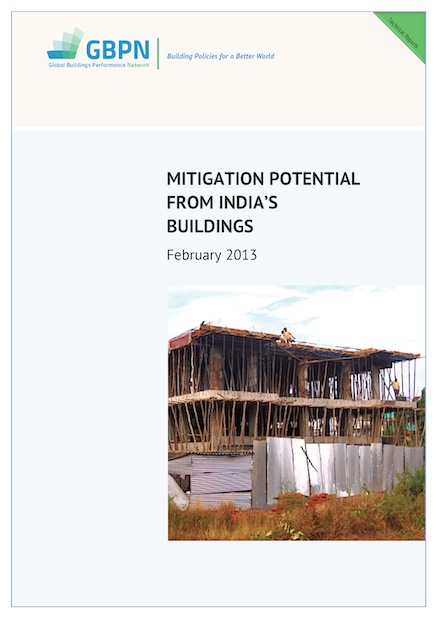 可靠证据表明,至2050年印度建筑领域会产生巨幅能源增长,基于此估测,本报告分析了印度目前建筑节能减排的政策框架及其节能潜力。
可靠证据表明,至2050年印度建筑领域会产生巨幅能源增长,基于此估测,本报告分析了印度目前建筑节能减排的政策框架及其节能潜力。
40 result(s) found
 可靠证据表明,至2050年印度建筑领域会产生巨幅能源增长,基于此估测,本报告分析了印度目前建筑节能减排的政策框架及其节能潜力。
可靠证据表明,至2050年印度建筑领域会产生巨幅能源增长,基于此估测,本报告分析了印度目前建筑节能减排的政策框架及其节能潜力。
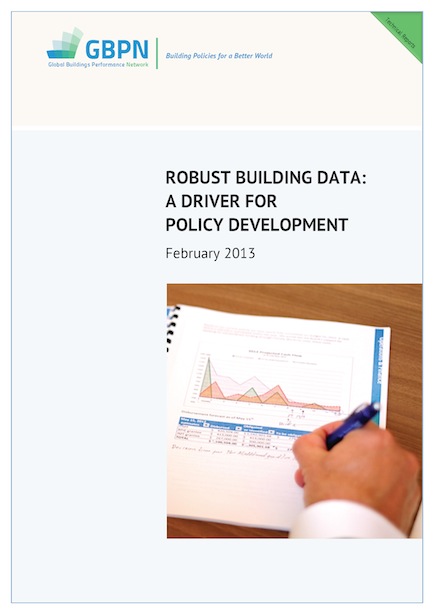 本报告就四个地区数据质量和数据的可利用性问题进行了分析,同时也提醒了我们需要完成多少工作才能建成一个强大而全面的建筑数据库,并提出了实现这个数据库的可行性建议。
本报告就四个地区数据质量和数据的可利用性问题进行了分析,同时也提醒了我们需要完成多少工作才能建成一个强大而全面的建筑数据库,并提出了实现这个数据库的可行性建议。
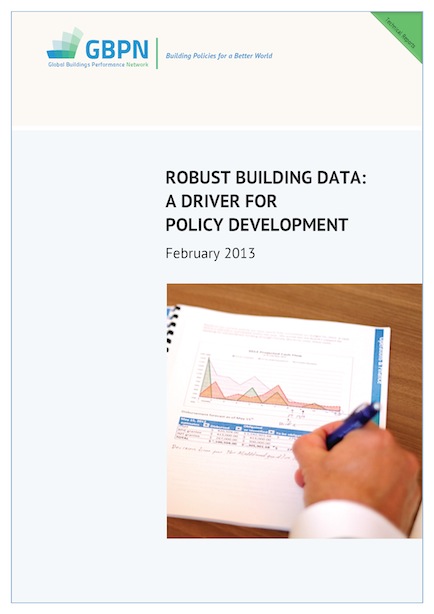 本报告就四个地区数据质量和数据的可利用性问题进行了分析,同时也提醒了我们需要完成多少工作才能建成一个强大而全面的建筑数据库,并提出了实现这个数据库的可行性建议。
本报告就四个地区数据质量和数据的可利用性问题进行了分析,同时也提醒了我们需要完成多少工作才能建成一个强大而全面的建筑数据库,并提出了实现这个数据库的可行性建议。
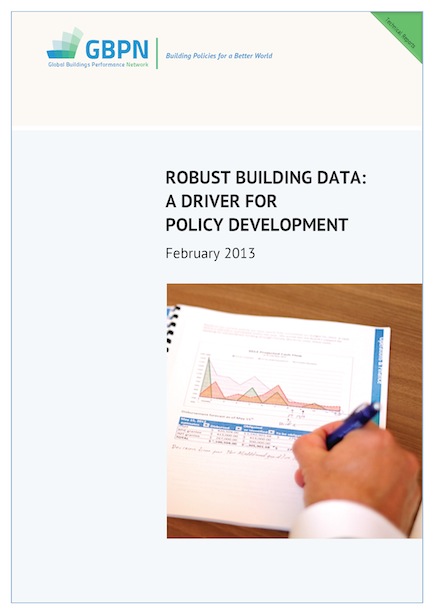 Data Annex
Data Annex
Discover where things stand regarding building energy data quality and availability in our four regions, this report reminds us of how far we have to go before a robust and comprehensive set of building data is in place and provides some recommendations of how we can get there.
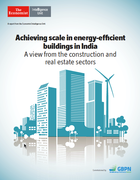 The Economist Intelligence Unit (EIU) report "Achieving scale in energy-efficient buildings in India: A view from the construction and real estate sectors" commissioned by the GBPN explains the challenges and opportunities of investing in energy efficiency in buildings in India.
The Economist Intelligence Unit (EIU) report "Achieving scale in energy-efficient buildings in India: A view from the construction and real estate sectors" commissioned by the GBPN explains the challenges and opportunities of investing in energy efficiency in buildings in India.
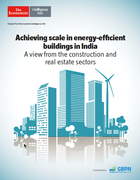 A report from the Economist Intelligence Unit (EIU), commissioned by the GBPN finds that while India’s commercial building sector has blazed the energy-effiency trail in the building sector, achieving significant scale will depend on efficiency measures becoming standard practice in the commercial middle market, retrofit and, particularly, the residential building segment.
A report from the Economist Intelligence Unit (EIU), commissioned by the GBPN finds that while India’s commercial building sector has blazed the energy-effiency trail in the building sector, achieving significant scale will depend on efficiency measures becoming standard practice in the commercial middle market, retrofit and, particularly, the residential building segment.
 Executive Summary
Executive Summary
GBPN conducted a study on the factors affecting the use of ESCO models for the retrofit of existing buildings in China, identifying current barriers to the development of the Chinese ESCO market, while also researching best-practice examples of ESCOs globally and investigating the feasibility of introducing those examples to China.
Building energy efficiency is an important strategy for reducing greenhouse gas emissions globally. In fact, 55 countries have included building energy efficiency in their Nationally Determined Contributions (NDCs) under the Paris Agreement. This research uses building energy code implementation in six cities across different continents as case studies to assess what it may take for countries to implement the ambitions of their energy efficiency goals.
This report presents the outcomes of a pilot study exploring how the building and planning system is delivering a sustainable built environment in Australia. It identifies four key issues emerging from the research highlighting both the challenges and opportunities in implementing ESD in the built environment in the Victorian context. These are: 1) the gap between the planning and building system; 2) weaknesses in the planning system; 3) governance, inconsistencies, and coordination; and 4) improving the system – networks and advocacy.
Reliably reducing the emissions in the building sector plays a crucial role if the 1.5°C climate target from the Paris Agreement is to be met. The observed trends show a significant increase in building energy use, especially in emerging economies. Counteracting these trends is absolutely essential, especially in the light of urbanisation, population growth and changing lifestyles. In terms of mitigating the climate impact of buildings, ensuring high levels of efficiency (i.e.
This paper introduces the major state-level regulations and policies for improving energy efficiency in buildings. The purpose of the review is to discuss the challenges and issues in policy implementation and the latest trend in adopting innovative instruments. The implementation of customer efficiency programs increasingly incorporates non-price instruments to encourage participation and deep savings. States pay attention to not only code adoption and update but also compliance and evaluation.
This study examines the sources of evidence that influence decision-makers who design or develop office buildings, and aims to explain why some managers engage more in evidence-based practice (EBP) than others. A mixed methods approach is conducted that combines quantitative results from 187 senior managers in the built environment and qualitative data from 18 interviewees. The respondents evaluated the use and trustworthiness of different sources of evidence, followed by an assessment of practitioners’ adoption and understanding of EBP.
Public health co-benefits from curbing climate change can make greenhouse gas (GHG) mitigation strategies more attractive and increase their implementation. The purpose of this systematic review is to summarize the evidence of these health co-benefits to improve our understanding of the mitigation measures involved, potential mechanisms, and relevant uncertainties. A comprehensive search for peer-reviewed studies published in English was conducted using the primary electronic databases.
Policy and decision makers, economists and engineers often have to choose between new-energy-generation installations for producing additional energy or reducing the energy consumption through energy efficiency measures. To enhance the decision-making process of the concerned parties with evidence-based comprehensive tools, we perform a literature review on the costs and benefits associated with energy efficiency and evaluate these costs and benefits against a new proposed framework.
The review of policies being implemented in China, the EU, India and the US presented in this report has also identified some key challenges that we must address if we are going to realize the mitigation potential of the building sector. Chief among these is the need to improve our monitoring of the impact that our policies are having. Lack of measured and verifiable data on the influence of policies on building energy performance currently hampers our ability to assess and continuously improve their effectiveness.
This article provides useful information that could help you address some barriers to sustainable initiatives: Every executive that you speak to is aware that data can be manipulated and may be skeptical of studies conducted by organizations that could benefit from a particular set of results. So I've included information on independent third-party studies. In challenging economic times, people are particularly concerned about short-term cash flow.
This project, “International Review of Residential Building Energy Efficiency Rating Schemes”, is the fifth project in a series of work conducted through the Building Energy Efficiency Task Group (BEET), under the International Partnership for Energy Efficiency Cooperation (IPEEC). This project report presents key governance and administrative considerations in the design of energy efficiency rating schemes, available information on the cost-effectiveness and market impact of rating schemes, barriers to uptake of schemes and lessons learned from the implementation of schemes.